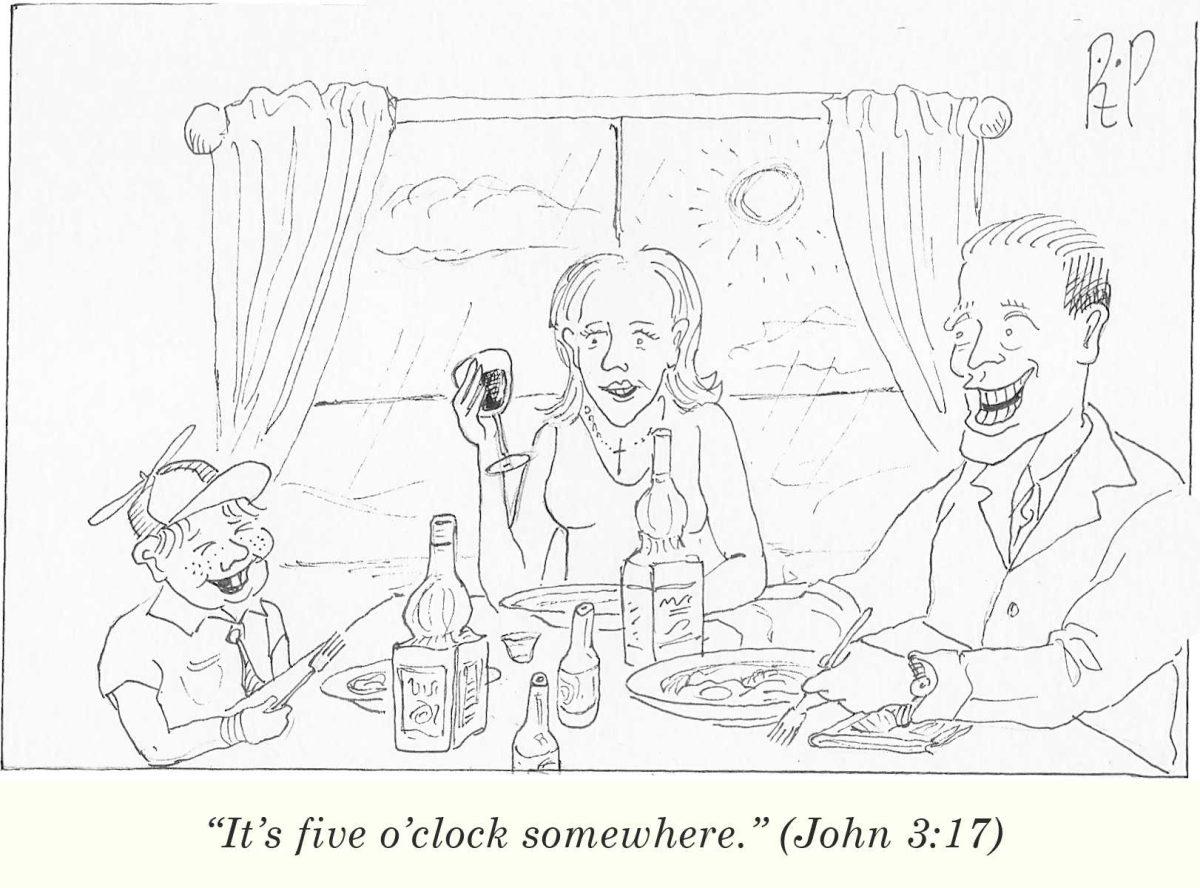We all thought the days of Prohibition were over, but in East Baton Rouge Parish, sentiments of a long-abolished Puritanical law continue to linger – at least on Sundays.
Alison Gary, councilwoman for District 11 and LSU alumna, will introduce an amendment tonight at the East Baton Rouge Parish Metro Council to remove current restrictions on the Sunday sale of alcohol at restaurants, bars and grocery stores, which continue to cause headaches for business owners and drinkers alike.
According to the outdated ordinance, grocery stores may not sell alcohol before 11 a.m. on the Sabbath, and in order for restaurants to sell alcohol after 11 a.m., 50 percent of their gross monthly revenue must be derived from food sales, not alcohol. While local bars are allowed to remain open during special events – such as Super Bowl Sunday – they are forced to shut their doors on ordinary Sundays.
The amendment, if passed, would allow Sunday to be like any other day of the week in terms of alcohol sales.
Until then, stock up your liquor closet and be prepared to enjoy your early Sunday morning mimosas and Bloody Marys at home.
But to be serious, these restrictions do much more. They hurt our local businesses and limit the freedom of business owners.
Gary agreed.
“I think it’s important to remove the Sunday restrictions in order to allow residents of the parish and businesses in the parish to make their own decisions,” she said. “I do not think it is the role of government to put these types of restrictions on businesses and residents.”
Conversely, Councilwoman Tara Wicker said she would oppose the amendment, which she thinks will negatively affect urban neighborhoods.
“My larger issue is what impact that has on those urban areas that are already suffering from on oversaturation of alcohol outlets,” Wicker told The Advocate. “The fear is that the more we lessen the restrictions, the more the availability there is, it causes adverse effects.”
But availability of alcohol does not always correlate with crime in other areas of the parish, including the area near Gary’s residence.
“In my part of town, on Jefferson Highway near Corporate Boulevard, I counted about 20 alcohol outlets – bars, restaurants, retailers,” Gary said. “We do not have a crime problem. The bottom line for me is that it is not government’s job to babysit us, save us from ourselves, or make decisions for us.”
If people want to drink, they will find a way to do it. Even if that means stocking up the day before or stopping by a nearby grocery store or restaurant – after 11 a.m., of course.
The time restriction at 11 a.m. may be the silliest detail of the ordinance.
Aside from morning church processions, Sunday is just another day of the week. Are we attempting to assure all members of the congregation arrive to church sober?
Regardless of the history of the ordinance, the restrictions remain outdated in our day.
Fort Lauderdale saw a similar transformation in 2011 when the mayor signed an ordinance allowing businesses, which were prohibited from selling alcohol before noon, to begin serving alcohol at 7 a.m., according to the Sun Sentinel.
But Fort Lauderdale wasn’t alone. Only months later, 105 out of 127 Georgia communities voted to abolish a century-old law banning the sale of alcohol on Sunday.
Now that the ever-growing trend to end restrictions on Sunday alcohol sales has reached Baton Rouge, residents should contact metro council members and voice their opinions on the issue.
As the W.C. Fields joke goes, “Once, during Prohibition, I was forced to live for days on nothing but food and water.” But in our case, we were forced to stampede into the grocery stores at 11 a.m. to pick up refreshments for the first three noon Saints games.






